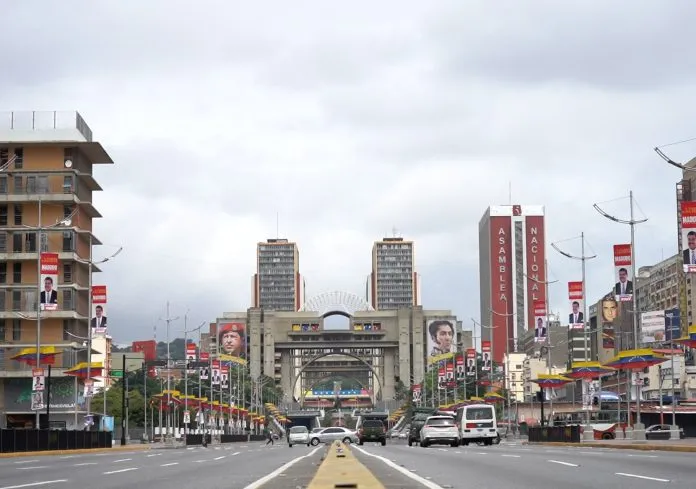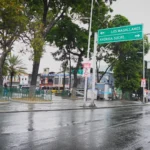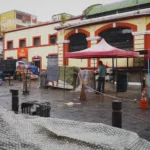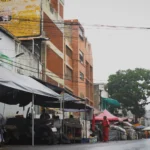Introduction
On July 29, 2024, Caracas, the capital city of Venezuela, was enveloped in a wave of discontent and unrest following the controversial announcement of the presidential election results. The official declaration by the National Electoral Council (CNE), led by Elvis Amoroso, that Nicolás Maduro had won the election with over 5 million votes sparked widespread skepticism and outrage among citizens. The unrest manifested in intense protests, including widespread cacerolazos, and harsh repression by security forces. This comprehensive account delves into the events of the day, capturing the essence of the public’s reaction and the subsequent response from the authorities.
The Election Announcement
The Official Result
The tension began to build after Elvis Amoroso, President of the CNE, declared Nicolás Maduro as the winner of the presidential elections. According to the official figures, Maduro received 51.2% of the votes, surpassing his main opponent, Edmundo González Urrutia, who garnered 44.2%. The results came under scrutiny due to allegations of electoral fraud and irregularities, sparking widespread skepticism about the legitimacy of the outcome.
Public Reaction
The announcement of the results led to an immediate and intense reaction from the public. Many Venezuelans were disillusioned by the election process and the results, which they felt did not reflect their true voting intentions. The dissatisfaction was evident in the widespread protests that erupted across various neighborhoods in Caracas and beyond.
The Cacerolazo and Protests
The Outburst of Anger
Around midday, as the city began to stir with daily activities, a powerful cacophony of cacerolazos, or kitchen pot protests, resonated throughout Caracas. This form of protest, characterized by citizens banging pots and pans to make noise, was heard in both affluent areas and working-class neighborhoods. The cacerolazos symbolized the public’s frustration and desire to voice their dissent against the election results.
Spontaneous Protests
Following the cacerolazos, hundreds of people took to the streets in various parts of the city. Notably, the protests were not organized by opposition leaders but emerged spontaneously from the public. Citizens from neighborhoods like Petare, Catia, and El Cementerio were seen marching and demonstrating their displeasure with the declared results.
Accounts from the Streets
Public Sentiment
The mood in Caracas was one of palpable frustration and disappointment. The feeling of betrayal was widespread among the populace, who felt that their votes had been disregarded. Many citizens expressed their discontent by burning tires and tree branches in the streets, especially near significant government buildings like the Miraflores Palace.
One individual, who chose to remain anonymous, expressed his anger by stating, “They stole the election from us.” This sentiment was echoed by others who had voted in areas traditionally considered strongholds of the ruling party but felt that the results did not reflect their true preferences.
Personal Stories
Among the demonstrators was a woman who worked in a kiosk and reported that the atmosphere was “relaxed” but noted that sales had been poor, with many businesses closing early. She described the general sentiment as one of deep disillusionment.
In contrast, another citizen downplayed the significance of the protests, suggesting that the results were final and there was no point in questioning them. This perspective highlighted the deep divisions in public opinion and the varying degrees of acceptance of the election results.
Reactions in Different Neighborhoods
In the popular neighborhood of Sucre, which the regime categorizes as a chavista stronghold, protesters took to the main avenue, burning tires and branches to express their dissatisfaction. The proximity to the Miraflores Palace underscored the gravity of the protests and the symbolic nature of their location.
In Plaza Francia, Altamira, known for its historical significance and past instances of repression, a heavy security presence was observed. Security forces, including riot police and military personnel, were deployed to manage the situation, reflecting the government’s effort to maintain control and suppress dissent.
Government Response and Repression
The State’s Reaction
The Venezuelan government’s response to the protests was marked by a significant security crackdown. The National Guard and the National Police were actively involved in dispersing the crowds and detaining protesters. Reports indicated that several individuals were arrested during the demonstrations, highlighting the government’s approach to managing public dissent.
The Impact of Repression
The use of force against protesters added to the public’s frustration and sense of injustice. The repression further fueled the unrest and amplified the public’s desire to challenge the election results and the government’s actions. The heavy-handed response underscored the tense and volatile nature of the situation in Caracas and the broader Venezuelan context.
Broader Implications
Societal Impact
The events of July 29, 2024, reflect a deep-seated discontent within Venezuelan society. The protests and the subsequent repression highlight the ongoing challenges faced by the country, including issues of political legitimacy, public trust, and the broader socio-political climate.
The widespread nature of the protests and the intensity of the public’s reaction indicate a significant rift between the government and the citizens. The dissatisfaction with the election results and the manner in which the protests were handled are indicative of broader issues within Venezuelan society.
International Attention
The events in Caracas have drawn international attention, with observers and human rights organizations closely monitoring the situation. The violence and repression against protesters have raised concerns about human rights and the democratic process in Venezuela. The international community’s response will likely influence diplomatic relations and the future trajectory of the country’s political landscape.
Conclusion
The unrest in Caracas on July 29, 2024, represents a critical moment in Venezuela’s ongoing political crisis. The combination of disputed election results, widespread protests, and severe repression highlights the deep divisions within the country and the challenges faced by its citizens.
As Venezuela navigates this turbulent period, the response from both the government and the international community will play a crucial role in shaping the future of the nation. The events of the day underscore the need for dialogue, transparency, and a commitment to addressing the underlying issues that have fueled the unrest.





